![]() — หน้าแรก — เกาะติดข่าว
— หน้าแรก — เกาะติดข่าว
ข่าวเศรษฐกิจและธุรกิจประจำสัปดาห์
-

SEZs in Myanmar should encourage policy experimentation and focus on tech spillovers (an Economist)
SPECIAL Economic Zones (SEZs) in Myanmar should encourage policy experimentation and focus on tech spillovers, an economist told The Myanmar Times. By early June, 95 percent of the land plots in Thilawa SEZ zone A had been sold and the building of manufacturing plants is ongoing, while zone B is already under construction. At the same time, Dawei SEZ has been further delayed, whereas a Memorandum of Understanding (MoU) for Kyaukphyu SEZ is expected to take place very soon. A central component of the government’s strategy, under U Thein Sein, to bolster the manufacturing sector is through the establishment of SEZs. However, so far the three SEZs have differed drastically in their progress, and in the level of controversies they have attracted. SEZs may have promising effects in theory, but their success as an engine of economic growth, import facilitation and as a hub for FDIs is not guaranteed. The Myanmar Times sat down with economists from the International Growth Centre (IGC) on June 19 to talk about their research on SEZs. -
To boost Myanmar's economy, private banks plan to extend more credit to SMEs
SMALL and medium enterprises in Myanmar will soon get greater access to finance as private banks plan to extend more credit to boost the economy, according to speakers at the Amcham Financial Services Forum held last week. Zaw Lin Aung, managing director of KBZ Bank, the largest private bank in Myanmar with the largest retail network, said the bank had changed its lending policy to help the growth of SMEs across the nation. “Our lending to SMEs is not based on collateral any more. We have changed to subjective- or objective-based lending. It is now based on their capacity to repay,” he said. He said less reliance on collateral led the bank to knowing more about customers, understanding their business plans, knowing their financial conditions, and identifying sources of repayment. -

Agriculture and livestock industry leaders discuss new insurance items for their sectors with related agencies to prevent losses
Members of the agriculture and livestock in industry met with officials from the Ministry of Agriculture, Livestock, and Irrigation and Myanmar Insurance Enterprise to discuss the prospect of offering new insurance items for their sectors, according to a UMFCCI press release. Insurance for agriculture and livestock businesses would prevent against significant losses caused by crop destruction, uncommonly low yields, animal disease, and a host of other occasional speed humps. Dr. Aung Thu, Union Minister of Agriculture, Livestock and Irrigation was enthusiastic about the idea stating, "insurance will be a win-win for both insurance companies looking to expand and agricultural or livestock businesses who need protection against losses." -
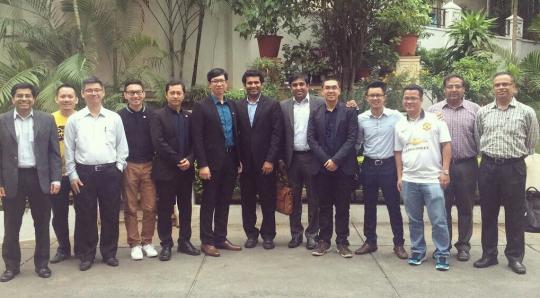
In partnership with mFino, a global fintech solution provider, AYA Bank will introduce mobile fintech products and advanced payments for the market by the end of this year
AYA BANK, one of the top three private banks in Myanmar, recently signed a pact with mFino, a global fintech solution provider, to deliver new products and advanced payments for the market, said Myint Zaw, the bank’s managing director. He said the partnership would lead the bank to introducing mobile fintech products by the end of this year. He seemed proud to play a role in Myanmar’s bid to ensure financial inclusion. “We target all the people who do not have even a bank account. We hope to bring Myanmar’s large underbanked and unbanked segments under the umbrella of financial inclusion with our new offerings,” he said. According to surveys done by different organisations, more than 90 per cent of Myanmar’s 53 million population do not have access to banks and financial institutions. The bank considers it as a room for improvement in the near future. -
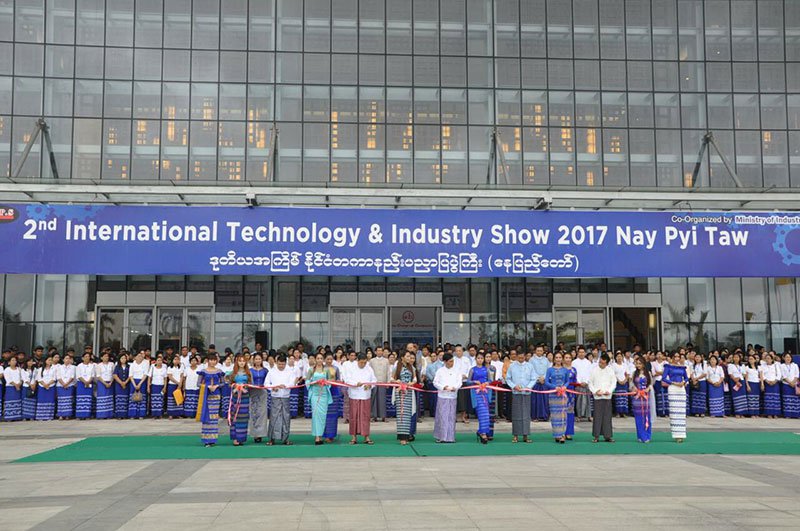
Ministry of Industry and Myanmar Promotion Services organized an exhibition on SME products to boost economy
Myanmar kicked off a three-day exhibition for SME products, aiming to develop industries and technologies vital to the country’s future development and enhance innovation and creativity. The exhibition is organized by the Ministry of Industry and Myanmar Promotion Services, from 25-27 August 2017, at MICC-2 in Nay Pyi Taw. The development of industrial and technological sectors will play a crucial role in Myanmar’s future growth. SMEs can also play an important role in linking local and foreign markets. That’s why the goals of this exhibition are:to introduce international technologies to help further the development of Myanmar’s SME sector;to enhance public awareness of domestic and international technologies; to expand value-added production and the use of advanced technology, by undertaking technology exchange, and increasing cooperation and coordination between public and private organizations;to encourage domestic creativity and innovation. In line with its SME development policy, by hosting SME exhibitions, the government aims to drive the country’s economic growth, encourage the role of entrepreneurs and SMEs and build connections with the regional and global communities. -
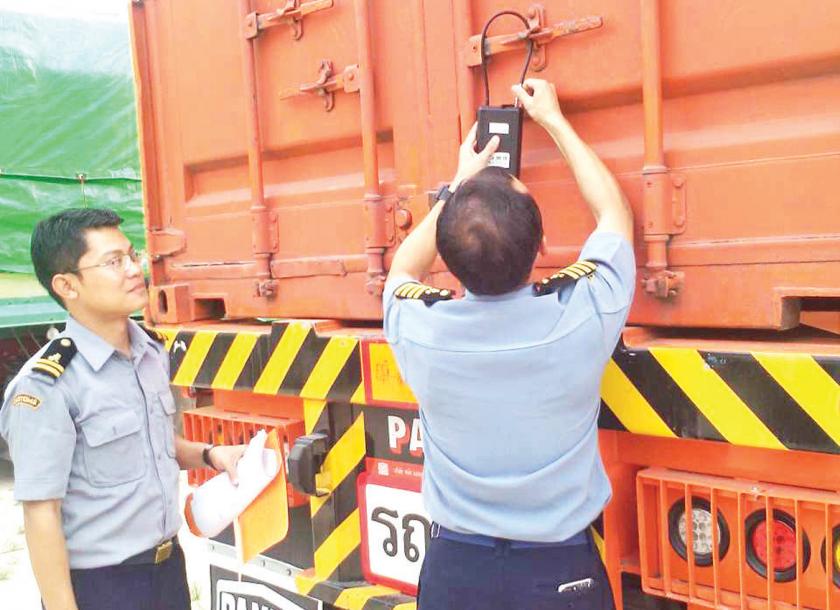
Pilot project illustrates that semi-trailer swapping at Mae Sot-Myawaddy border halves the time spent on travelling between Thailand and Thilawa SEZ and is thus an effective cross-border logistics solution
Sending a container from Panomsarakarm to Thilawa SEZ takes 2.5 days, whereas conventional logistics needs 4-5 days and ocean freight takes approximately 3 weeks. A pilot project which uses semi-trailer swapping with bonded cargo has halved the time needed to reach Thilawa SEZ from Thailand compared to conventional road freight. Despite numerous problems, the scheme represents a step towards efficient and barrier-free trade between Mae-Sot and Myawaddy, making cross-border logistics a potential option for a wide range of suppliers. The trial was supported by the Ministry of Transport and Communications and carried out by Myanmar International Freight Forwarders Association (MIFFA), Thilawa-headquartered Daizen Myanmar and Malaysia-based Overland Total Logistic Services (OTL). The Ministry of Transport and Communications and MIFFA outlined four steps to improve logistics at the Thai-Myanmar border’s major trading point between Mae-Sot and Myawaddy. The first step involves manual transloading; the second one refers to the exchange of containers with crane-lifting; the current pilot scheme utilises semi-trailer swapping; and the ultimate goal is to have a system allowing the free flow of trucks cross the border. -
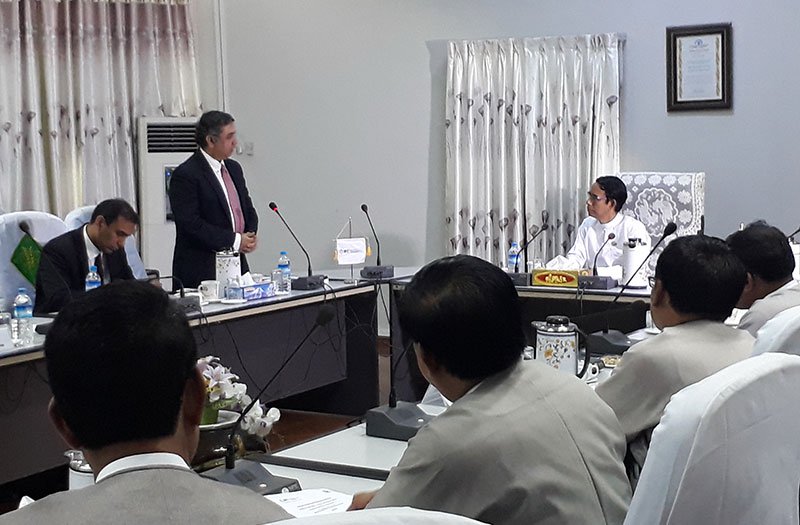
In order to boost productivity, quality and development skills in Myanmar's agricultural sector, IFC will support and sign an advisory agreement with the Ministry of Agriculture, Myanmar
IFC, a member of the World Bank Group, signed an advisory agreement with Myanmar’s Ministry of Agriculture, Livestock and Irrigation (MoALI) on August 25 to support its efforts with boosting sector productivity, quality and skill development. The technical assistance programme is supported by the Department of Foreign Affairs and Trade of Australia, the Department for International Development of the United Kingdom and the Government of Japan. The country’s agricultural sector is a key pillar of the economy and provides employment to about 53 percent of the labor force and is a source of livelihood for about 70 percent of the rural population. Through this agreement, IFC’s technical assistance will support the government’s objective of increasing the productivity, market access and competitiveness of the agricultural sector by improving the provision of quality inputs to farmers. As a driver of growth and innovation, the private sector will play a significant role in assuring quality seeds, fertilizer and crop protection products reach farmers efficiently. A strong balance between efficient markets and effective regulation is needed along with an improved way of working together for the government and private sector. -
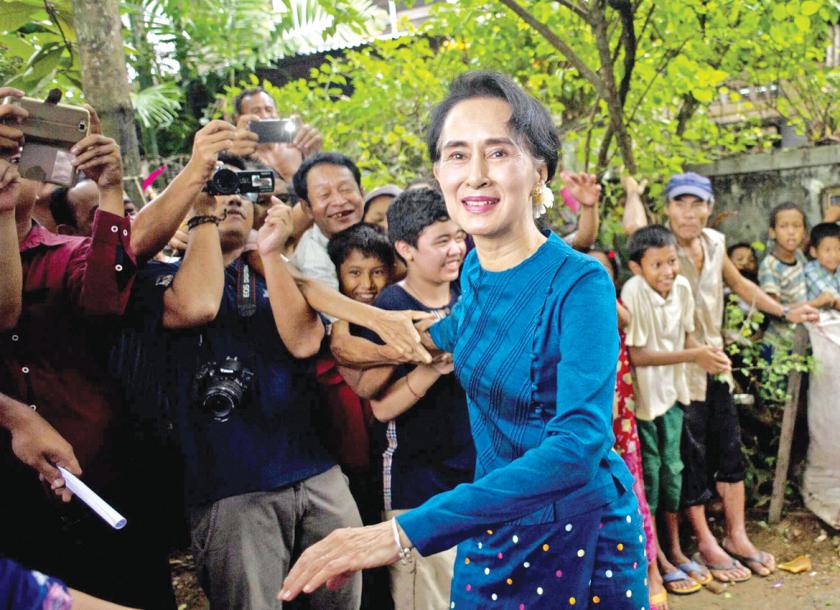
NLD Economic Committee strengthens itself by appointing an economic expert and certified public accountant as two new members
The Economic Committee for the National League for Democracy (NLD) government has recruited two additional members. They are economic expert Dr. Aung Ko Ko and Certified Public Accountant U Win Tin. The appointments, which are expected to reinforce the NLD Economic Committee, come shortly after State Counsellor Daw Aung Sang Suu Kyi said she would take a direct and active role in handling state economic affairs. -
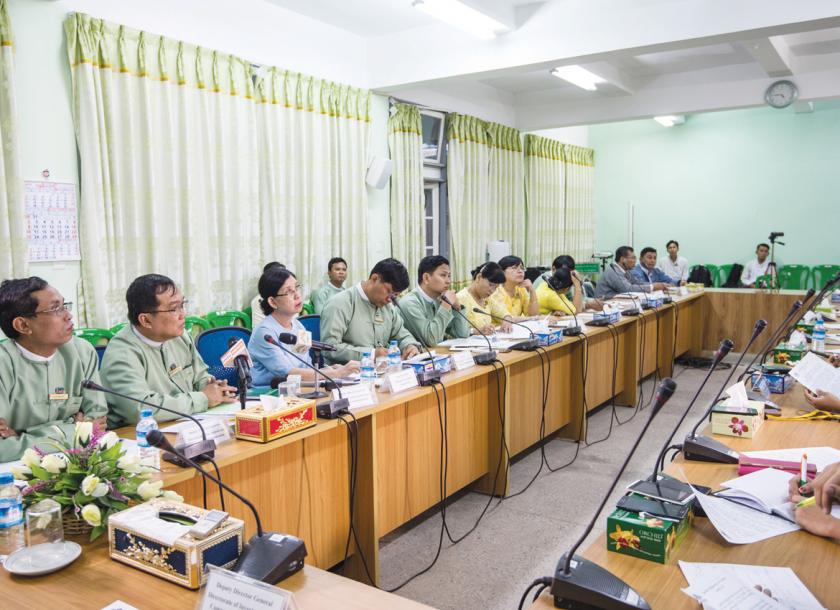
Myanmar Investment Commission gives regional and state investment commissions 15 working days to review applications from investors
The Myanmar Investment Commission will retain the power to approve or reject applications for tax incentives. Regional and state investment commissions are given 15 working days to review an application once they have accepted a submission from an investor, according to Notification No 25/2017 released by the Myanmar Investment Commission. The Myanmar Investment Commission (MIC) has released the latest procedures for state and regional investment commissions in assessing various types of applications. The new Investment Law enacted and promulgated earlier this year has delegated power to regional authorities. Regional and state investment commissions have the authority to approve investment proposals without having to seek permission from the MIC. Exceptions include capital intensive investments, investments with considerable environmental impacts and sectors asked by the Union government for scrutiny will need to ask the MIC for approval. The maximum amount of investments which can be approved by regional and state investment commissions is US$5 million (K6 billion). -
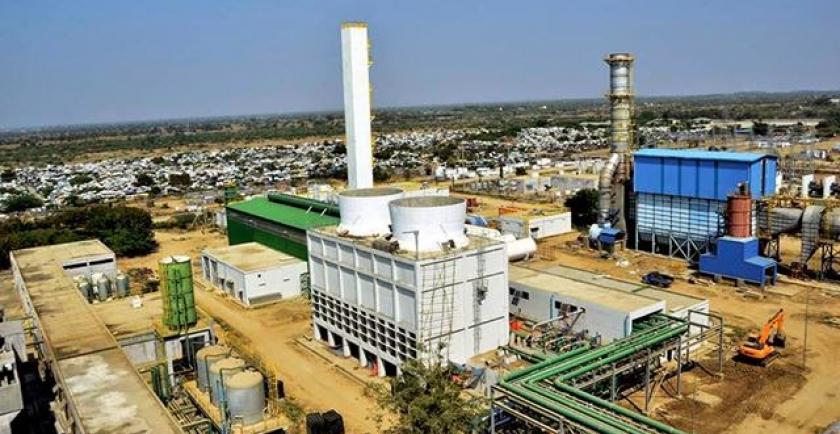
Union Minister of Industry makes the case for Myingyan Steel Mill in Parliament to promote the production of 400,000 tons of steel annually
Upon the Myingyan No-1 Steel Mill completion, it will be capable of producing 400,000 tons of steel annually, a material Myanmar industry desperately demands, U Khin Maung Cho, the Union Minister of Industry, told Parliament. The Union Minister urged the importance of the forthcoming steel mill and stressed the importance of finalizing construction as soon as possible. “A domestic producer has great potential in the wake of a national up¬swing of infrastructure and commercial development which rests upon large inputs of steel,” U Khin Maung Cho said. Currently, production is limited to 100 small private enterprises producing 70-100,000 tons of steel a year and a small number of public companies such as Myanmar Steel.
เกาะติดข่าว
Copyright © 2014 Business Information Center All Rights Reserved.







